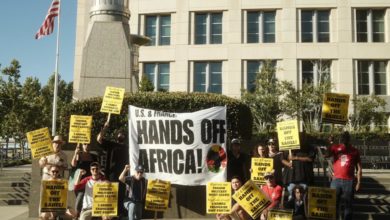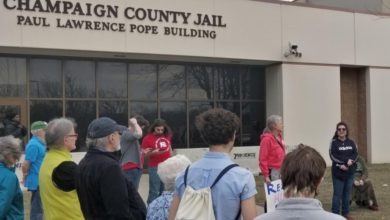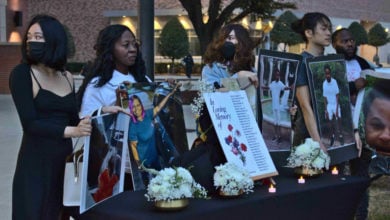On Aug. 23, the Prison Hunger Strikers Committee held a rally at the State Capitol in Sacramento, California. The committee, organized to support the recent prison hunger strike, demanded that legislators force California Department of Corrections and “Rehabilitation” to follow through and grant concessions won in the hunger strike by the inmates of the Security Housing Units at Pelican Bay State Prison and other California state prisons.
The rally took place two days after the 40th anniversary of “Black August,” the rebellion at San Quentin prison during which prisoners’ leader George Jackson was murdered., and two weeks before the 40th anniversary of the Attica rebellion. Like the hunger strikers at Pelican Bay and 13 other prisons in California, Attica inmates organized across class and national lines to demand fair and humane treatment.
Forty years later, California prison inmates are once again historically demanding that they be treated with human dignity.
At 11 a.m. more than 200 family members, community members and activists gathered in front of Sacramento City Hall from all over California. Local Sacramento media and KPFA Pacifica Radio covered the rally.
Former political prisoner Linda Evans of All of Us or None opened the rally by hailing the success of the hunger strikers at making the CDCR agree to negotiate with strikers, and focusing public opinion on the inhumane conditions inside the SHUs.
Contrary to CDCR claims, prisoners at Pelican Bay have not yet seen action from the CDCR addressing their demands. Many family members and ex-inmates came to the podium and gave testimony regarding the horrific prior and current conditions in Pelican Bay and other SHU or super-maximum security prisons.
Each statement was a gripping account about the lack of CDCR transparency as well as its complete lack of concern for human dignity. For instance, two former convicts told of prison guards purposely withholding sanitary supplies like toilet paper and feminine napkins for kicks.
At 1:30 pm the demonstrators entered the State Capitol for a hearing initiated by Assemblypersons Tom Ammiano and Heather Mitchell. The hearing was divided into three main sections: statements from supporters of the hunger strikers, statements from representatives of CDCR, and public comment.
The initial statements of support came from Earl Fears, former Corcoran SHU inmate, Glenda Rojas, family member of an inmate at Pelican Bay and Reverend William McGarvey, of the Bay Area Religious Campaign Against Torture. Their statements focused on the SHU system which inflicts severe mental and physical damage on inmates due to long-term isolation, a form of torture, while doing nothing to rehabilitate inmates.
These speakers were followed by prisoner rights lawyer Charles Carbone; Laura Magnani, American Friends Service Committee; Dorsey Nunn, Executive Director, Legal Services for Prisoners with Children and All of Us or None; Terry Kupers, of the Wright Institute; and Craig Haney, professor of psychology, UC Santa Cruz. Each speaker presented documented evidence supporting the earlier statements and called on legislators to use their authority to hold the CDCR accountable.
The CDCR representative, Scott Kernan, claimed that the CDCR has been charged with “taking care” of the “worst of the worst,” and hence, their actions are justified. “And the CDCR will take what they feel is the appropriate action” he added.
Kernan neglected to comment on the examples of misconduct by the CDCR that were referenced in the earlier testimonies. He blamed the bad economy for the CDCR failure to implement the US Commission on Safety and Abuse in America’s Prisons 2006 Recommendations Regarding an End to Long-Term Solitary Confinement, which was one of the hunger strikers five demands. This, despite the fact that prisons are one of the most highly funded programs in California, and have been dealt very minor budget cuts compared to education and social programs.
Both Assemblypersons Ammiano and Mitchell pointed out some of these contradictions in their counter-examination, to which Kernan did not have the ability to adequately respond.
Once the public comment portion began, Kernan ran out of the building. All the public comment came from supporters of the hunger strikers pressuring the legislators to follow through with changes in the CDCR and to grant the SHU inmates their five demands.
It is important that the public continue to mobilize pressure. The conditions of life in the SHU are inhumane. This hearing and gestures of good faith from legislators comes as a direct result of the historic actions of the hunger strikers and solidarity actions taken by the public. Only the movement will secure real action from the legislature and the CDCR.






